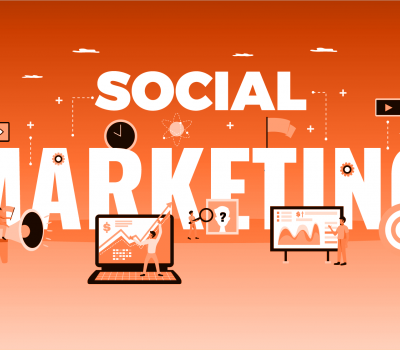Driving Social Change with Marketing
Posted by Marketing & PR on 24 Sep 2024

In this interconnected world, marketing’s reach goes beyond traditional commercial advertising—it is a powerful vehicle for societal improvement. Social change marketing harnesses marketing techniques not to sell products but to influence public behaviours and societal attitudes towards more positive outcomes.
This strategic application of marketing tools and theories can drive widespread social reform. Social change marketing operates at the intersection of psychology, sociology, and traditional marketing. It involves understanding psychological motivators and social structures and then applying this knowledge to design marketing strategies that encourage beneficial changes in behaviour.
Behavioural Insights
Understanding the psychological triggers that influence decision-making is crucial. Using behavioural science, marketers can craft messages that resonate deeply with target audiences, tapping into core motivations such as the desire for social acceptance, fear of missing out or alignment of personal values.
Effective social change campaigns must identify and understand distinct segments of the population. Demographic, psychographic, and behavioural segmentation allows marketers to tailor messages that are uniquely appealing and relevant to different groups, increasing the likelihood of resonance and action.
Uncovering insights with co-creation workshops
One effective technique to uncover valuable insights for social change campaigns is the use of co-creation workshops. These collaborative sessions bring together diverse people such as potential audience members, behavioural scientists, marketers, and policymakers, to share ideas and perspectives.
Using advanced research techniques such as co-creation workshops helps marketers understand these motivations, providing a strong foundation for campaigns that truly encourage positive actions.
This approach not only generates rich, firsthand insights but also fosters a sense of ownership and commitment among participants, enhancing the campaign’s relevance and impact.
Theoretical Frameworks
Theories such as the Theory of Planned Behaviour and Social Cognitive Theory provide frameworks that explain how attitudes are formed and changed. These theories are instrumental in crafting campaigns that can effectively alter perceptions and encourage healthy behaviours.
Choosing the right channels is critical for reaching the target audience effectively. Digital media offers precise targeting capabilities and the power of social networks, while traditional media like television and print can provide broader reach and credibility.
Creating Emotional Connections
Crafting campaigns that forge an emotional connection with the audience can drive engagement and change. This involves storytelling that evokes empathy or aligns with the audience’s values, making the social change personally relevant and compelling.
Marketing campaigns can utilise social proof to normalise new behaviours. By showcasing that certain behaviours are widely accepted or practised by admired groups or influencers, campaigns can motivate individuals to conform to these new norms.
Practical Examples of Social Change Marketing
Health Campaigns
Public health campaigns often use shock tactics or emotional appeals that highlight the dangers of unhealthy behaviours, coupled with positive messages about the benefits of change. They might employ multimedia approaches, combining social media, events, and traditional advertising to spread their message.
Environmental Campaigns
These typically focus on practical behaviours that can be adopted easily by individuals, such as reducing water usage or segregating waste. Campaigns often use visual cues in public places to remind and encourage these behaviours, supported by educational content online.
Civic Engagement Initiatives
Campaigns designed to increase voter turnout or civic participation may use strategies like normative messages (e.g., “Join millions of others who vote”) and emphasise the ease and importance of participation. They may also partner with celebrities or influencers to reach broader audiences.
The Importance of Social Change Marketing
Through the strategic application of marketing principles, social change marketing not only educates but also motivates and facilitates public movements towards greater societal benefits. It plays a pivotal role in addressing and mitigating complex social issues and transforming public attitudes.
With its roots in deep behavioural insights and strategic communication, marketing for social change offers a robust methodology for driving societal progress. By understanding and influencing human behaviour, providing motivating reasons and accessible means for change, and supporting these with an integrated communication approach, we can foster a culture where positive societal changes are widely accepted and enacted.
Our Expertise
We’ve been creating highly successful social marketing campaigns for our customers for over two decades. We love our work and use the latest marketing communication tools and most current segmentation and customer insight techniques.
This allows us to develop and integrate marketing concepts with other approaches to influence behaviour that benefits individuals and whole communities – for the social good.
Within our team, we have leading nationally recognised academic professionals within Psychology, Mental Health and Cognitive Behavioural Therapy that advise what messages and mediums will deliver the best response when we scope out a communications campaign or deliver any targeted communications.
This provides our clients with the reassurance and confidence of knowing that their communication objectives are underpinned by recognised academic behavioural theory, executed with award-winning creative design and using the latest Marketing Automation communication tools, whether it’s on a local, regional or national project.
Perfect Circle has delivered social change for clients like schools, local government, not-for-profit organisations, the health sector and niche commercial businesses, and we’re really proud of what we’ve done so far.
If you’d like our help on your next Behaviour Change Marketing or Social Marketing campaign, we’d love to hear from you. Please visit our contact page and get in touch.
No tags where found.

The power of automated marketing
Download Report